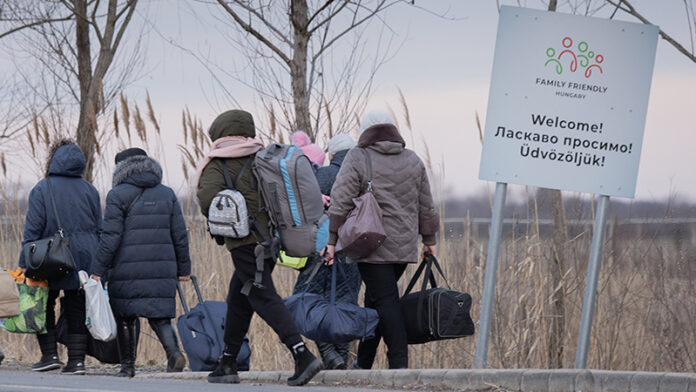Author: Heba Gowayed
Affiliation: Assistant Professor of Sociology at Boston University
Organisation/Publisher: Arab Center Washington DC
Date/Place: April 28, 2022, Washington DC/USA
Type of Literature: Policy Analysis
Word Count: 2105
Link: https://arabcenterdc.org/resource/racism-and-the-blocked-refuge-of-the-displaced-of-the-middle-east/
Keywords: Ukraine, Syria, Refugee Crisis, Asylum, Pushbacks, Frontex
Brief:
In this policy analysis, the author highlights the hypocritical “progress” being made against the different natures of refugees. Even though the asylum and refuge mechanisms have existed and been carried out for decades now, how these systems actually work have become crystal clear with the Russian Invasion of Ukraine. The UN records 5.2 million Ukrainians have become refugees in neighbouring countries, which will have a tremendous impact globally. As Ukrainians are quickly welcomed, it exposes the double-standard approach towards the different crises, such as Syria, Afghanistan, Eritrea and Haiti. The systemic discrimination of South-West Asian and North African (SWANA) citizens goes way back to colonial history. The racial component of the Ukrainian refugee crisis has clearly showcased itself through politicians and journalists’ comments; both politicians and commentaries have indicated their frustration over civilized society—blue-eyed, blonde people—being refugees. The author reminds us what scholar Edward Said’s orientalist framework is all about, how when the West portrays itself as civilized against the “uncivilized” and “primitive” societies, it dehumanizes SWANA countries and makes its peoples less worthy. Thus, European countries and the United States shape their borders to repel these people with walls and advanced technological equipment. While asylum seekers are expelled by the law and held in prison-like Closed Controlled Access Camps, EU countries have formed a new concept for Ukrainians called Temporary Protection Directive that gives three-year residencies. Such policies and response once again make it very visible that asylum was never about capacity, but is about political will. The author suggests that displacement crises can only be understood by examining colonial historical background. The Palestinian Crisis cannot be comprehended without the British Mandate, nor Syria without the French divide-and-rule strategy. Lebanon, Turkey, Jordan, and Egypt have been facing this humanitarian crisis for almost a decade now, and international NGOs’ efforts to obtain support from wealthier countries remains far short of actual needs. Instead of providing stability and safety (both environmental and legal), available channels for refugees have been narrowing down gradually. The author offers two solutions for the crisis. First is Resettlement, but after a process of admitting the refugees along with providing legal status. The second solution is Asylum. Resettlement is not a solution that is widely and frequently applied; in 2017, the Trump Administration dismantled the program, calling Syrians trojan horses for terrorism. This anti-Muslim and anti-Syrian racist sentiment is still embraced by the Biden Administration, which has already admitted 100,000 Ukrainians. The denial of refuge is also being blatantly applied by European Countries. Whenever refugees attempt to cross into Greece, they face brutal and illegal pushbacks that have resulted in thousands of deaths. Turkey’s Coast Guard actively patrols in order to rescue and assist these asylum seekers, who are left to drown in the sea while Frontex (the European Border and Coast Guard Agency) turns its head or actively assists Greece in its illegal acts. Viewed from a humanitarian perspective, we see how the Ukrainians are generously welcomed by host countries and receiving the assistance that every human being that experiences war deserves, while on the flip side the devastating implications for SWANA peoples remain.
By: Cemile Cengiz, CIGA Research Assistant




